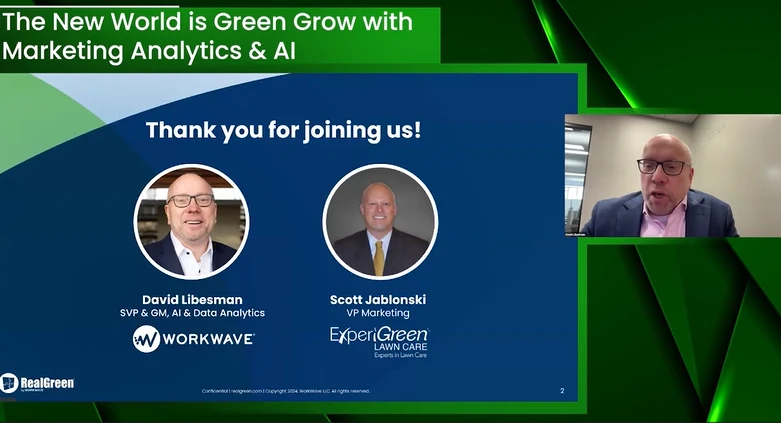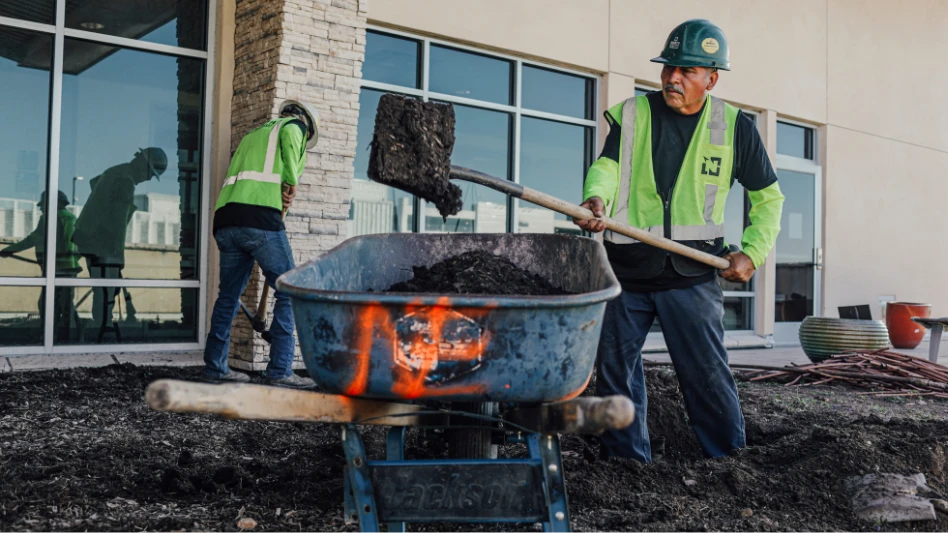
Boyd Ruckhaber rented a box truck to haul materials for a job. It isn’t a vehicle he uses all the time, so it made sense to borrow it rather than invest.
“I was driving along, and a tree fell on the car in front of me,” says the president of BR Landscape in Carnation, Washington.
The tree then bounced up over the cab of the box truck. “I ducked and it hit the box of the truck, ripping a hole in it,” he says. “Then, the tree went over the truck and landed in the road.”
Ruckhaber happened to have said “yes” to the extra rental insurance, and he never hesitates for a second when asked, “Do you want our coverage?” especially after that unusual situation.
Sure, no one plans on a tree falling and crashing down on equipment. But as Ruckhaber learned, anything can happen. “I always get the insurance on equipment I rent, even if my own insurance would cover damages, because it’s peace of mind,” he says.
Overall, Ruckhaber’s rental philosophy is: He buys when he knows he will keep the equipment busy, or when he needs immediate access to equipment and doesn’t want to worry about whether it will be available for rent.
“Maybe a piece of equipment we decide to buy won’t pay for itself the first few months, but we look at future usage.” Jacob Godar, CEO, Scooter’s Lawn Care
He rents when he’ll only use a piece of equipment for a limited period of time. For instance, he always rents an air compressor for irrigation winterization. If you own one, he says, “You have to license it and insure it, and since we only use it for three weeks out of the year, it makes more sense to rent.” Plus, he doesn’t have to find room to store it when he can just return it to the rental yard when he’s done.
Jacob Godar, CEO of Scooter’s Lawn Care in Springfield, Illinois, also seriously considers equipment usage before he’ll make a purchase. “It’s all about usability,” he says. “Whatever asset or piece of equipment you are looking to buy needs to spend time making revenue – that’s the determining factor.”
Godar also considers the future. Even if he doesn’t have a full schedule of jobs lined up to keep a skid-steer busy, he recognizes the demand his business has for the equipment could grow. “I tend to prepare early,” he says.
Figuring out whether to rent or buy is an important business decision that impacts the bottom line.
If a machine sits in the garage while you make monthly payments on it, that eats away at profit. And, if you find yourself scrambling to rent the same machine all the time – possibly paying more per month in rental fees than a financing payment would cost – it’s probably time to invest in the asset.

What to rent.
The decision to rent or buy certain pieces of equipment depends on the business, service demands, rental opportunities in the area and usage. Godar always rents aerators, even though he uses them every year. “We only use an aerator for a short period of time during the year,” he says.
Godar blocks those services into a two-week period and rents the machine for that time. “Then, we make sure we have the equipment set aside for us to rent,” he says.
On the other hand, Ruckhaber decided to purchase an aerator because then he doesn’t have to worry about access to rental equipment when the weather’s right to perform the work.
“It’s just nice to have around,” he says.
Ruckhaber also chooses to rent smaller pieces of equipment he uses infrequently, such as a cut-off saw or excavator. These are both machines he uses for specific jobs, such as cutting bricks for hardscaping or installing an irrigation system. Then, he can figure the rental fees into the job estimate to be sure his costs are covered.
When Godar began calculating the amount of time he and his crews needed a skid-steer loader, he decided to make the purchase. Also, his rental bills for this machine were adding up. With a down payment, the cost of purchasing the skid-steer is $337 per month. “We were paying in the neighborhood of $1,000 a month to rent it because we were using it so often,” he says. Even without a down payment, that rental cost would be about double the price of financing the purchase, Godar says.
And, there’s always the question of availability. What if you need a machine to complete a job but it has been rented by someone else? Can you afford to adjust the schedule, or find another rental location that might not be as convenient or with higher prices? These are all questions to consider in the rent versus buy case.
“I always get the insurance on equipment I rent, even if my own insurance would cover damages, because it’s peace of mind.” Boyd Ruckhaber, president, BR Landscape
The right rental partner.
Location, availability, equipment quality and pricing are key factors Ruckhaber and Godar consider when looking for a company that rents equipment.
“It’s not going to be all about price,” Godar says. “You don’t want to pay a really cheap price for a rental and get a machine that falls apart.”
Beware of the lowest-of-low rental prices. Additionally, find out how the rental company backs up its equipment.
“We had one aerator that broke down, and the rental company came out to the job site and brought a replacement,” Godar says.
Find out what type of support is provided with the rental agreement. “Ask them how they take care of dealing when equipment breaks down,” he says, adding that most rental companies are upfront about their policies. Review the rental agreement for conditions.
Ask about how the company manages and services its equipment. How often are machines replaced? How old or new is equipment? “Get a good feel for what the company is all about,” Godar says. How a rental company takes care of its equipment is likely a reflection on how they’ll care for customers, too.
Convenience and location are key factors when considering a rental company, Godar says. “You want the place to be close enough so it’s easy to use,” he says. He advises checking into the rental company’s incentives. Find out how long you can rent a machine at one time and whether there are minimum requirements.
He notes that one rental place in his area offers incentives for being “registered” as a company – and this includes the ability to run a monthly tab for machine rentals, which Godar does not do.
While it’s beneficial to build a relationship with a go-to rental company, have back-ups in the wings in case you need a machine for a project and it’s not available at the preferred rental business.
Whether renting or purchasing, Godar says the best advice is to do the math and plan ahead. “Maybe a piece of equipment we decide to buy won’t pay for itself the first few months, but we look at future usage,” Godar says. “We’re thinking forward.”

Explore the January 2018 Issue
Check out more from this issue and find your next story to read.
Latest from Lawn & Landscape
- Ever-changing landscape of SEO
- Fleetio acquires Auto Integrate, raises $450M in Series D funding
- Davey Tree expands in St. Paul, promotes Ostlie to district manager
- Schill Grounds Management taps 3 for senior leadership roles
- HD Hyundai Construction Equipment North America adds to wheeled excavator lineup
- High maintenance
- From Design to Proposal: Estimating and Rendering Support Services
- PERC adds Joel Stutheit as senior manager of business development





